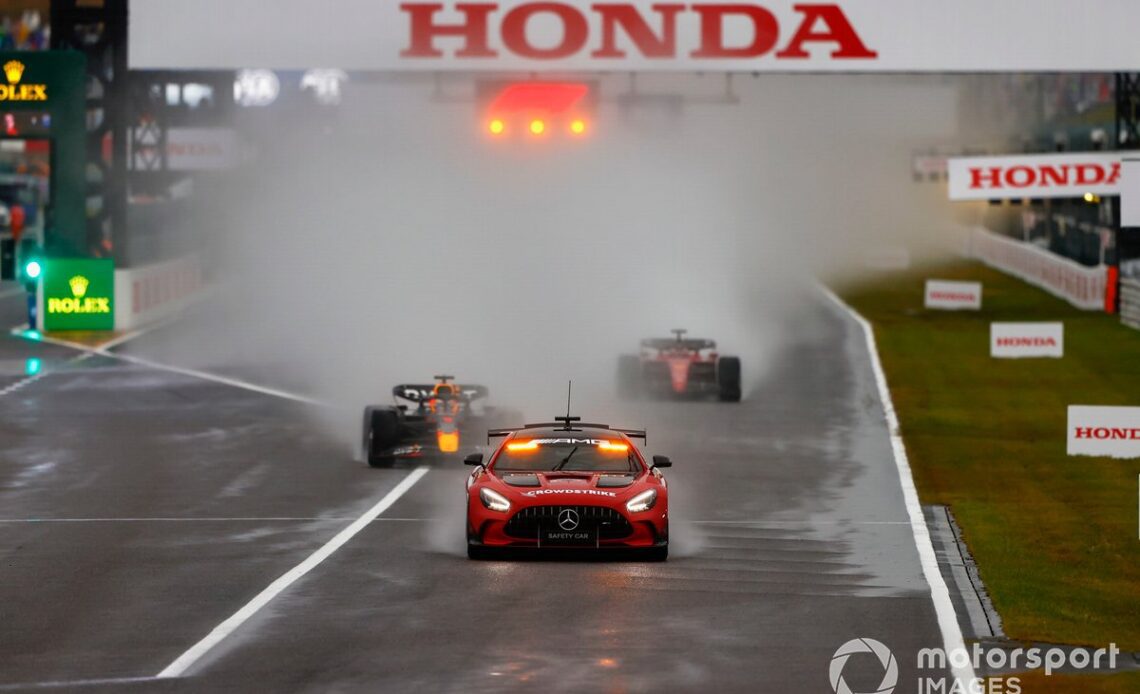There seems little doubt that some of F1’s previous great wet weather drives – think Ayrton Senna at Portugal in 1985, Michael Schumacher at Barcelona in 1996 and Damon Hill at Suzuka in 1994 – would not have happened these days because the races would never have been allowed to start.
This has led to inevitable criticisms that F1 these days is too risk adverse. With car safety standards being so high, plenty of people argue that surely the best drivers in the world should be allowed to get out there and sort things out for themselves.
But while certainly the threshold for what is an acceptable level of risk has changed with time, there are other crucial factors that make life much harder for F1’s 2022 cars in the rain.
Motorsport.com caught up with Grand Prix Directors’ Association (GPDA) chairman Alex Wurz for his insight into the matter.
And he cites several issues at play – some of which can be changed and some that are here to stay.
The Safety Car Max Verstappen, Red Bull Racing RB18, Charles Leclerc, Ferrari F1-75, the rest of the field for the restart
Photo by: Andy Hone / Motorsport Images
Health and safety
While there are physical factors – such as car and tyre designs – that have their role in dictating wet weather running, one critical element is the level at which the FIA deems running to be safe.
Safety advances have been hugely welcome in F1, and it would make no sense to spend so much effort in making cars safe to then have a completely lackadaisical attitude to letting drivers out in the worst of the rain.
As Wurz, who was caught up in the famous 1998 Belgian Grand Prix opening lap pile-up, said: “The entire world is moving into a more safety-first attitude.
“On one hand you can say this is bad, and this shouldn’t be the sport. But I think the sport has been absolutely sensational in improving the safety without jeopardising performance generally.
“But we can’t hide from laws, liabilities, difficult jurisdictions and difficult cases, which is continuously influencing sport and society. So it is a contributing factor.”
Changes in society also have their role in making rain delays a big deal too; for he thinks that decades ago fans would have thought nothing of waiting for a few hours. Nowadays attitudes are different.
“In those days, we have all been way more patient,” he said. “Our life is moving into a very short attention span and I want things at my convenience, so not being…
Click Here to Read the Full Original Article at Motorsport.com – Formula 1 – Stories…

